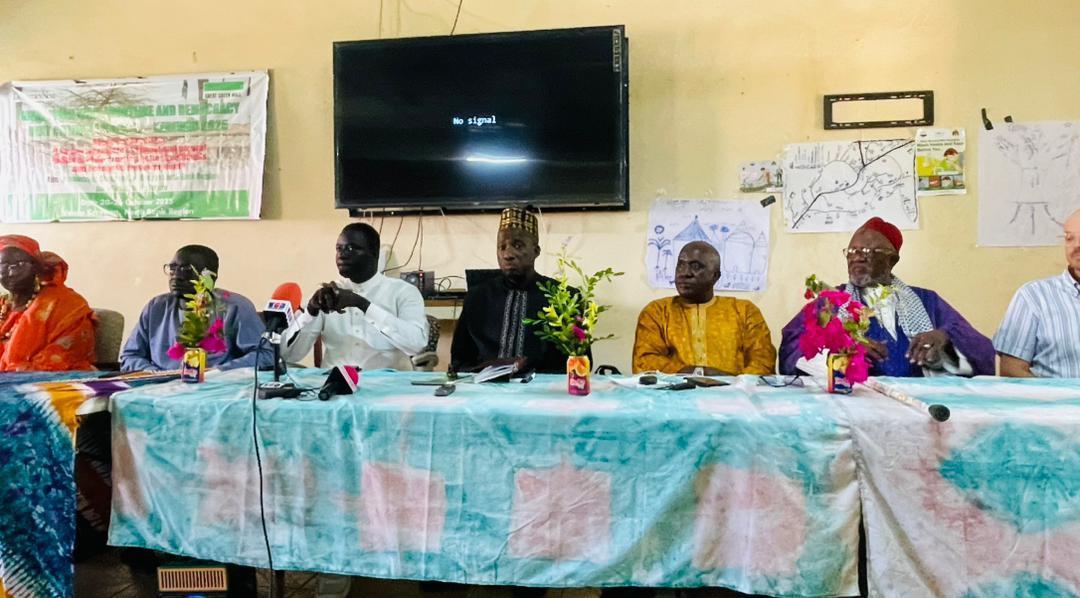Africa-Press – Gambia. Residents of the North Bank Region (NBR) have called for the setting up of a joint cross-border environmental committee between Gambia and Senegal to combat deforestation and other ecological challenges facing border communities.
This was one of the recommendations emerging from the North Bank Citizens’ Assembly on Climate Change held recently in Kerewan. The forum, spearheaded by the Great Green Wall Frontline in collaboration with Democracy Next, brought together local authorities, lawmakers, and environmental advocates to explore ways of restoring degraded lands and promoting sustainable livelihoods.
The assembly also called for stronger enforcement of existing environmental laws, including the national plastic ban, forestry and fishing regulations, and biodiversity protection measures.
Speaking at the opening ceremony, Dembo Samateh, representative of the Governor of NBR, commended the Great Green Wall initiative for taking bold steps towards addressing environmental challenges.
“My office is open to all development efforts. Anything that has to do with environmental protection or sustainable development, we are ready to collaborate,” he said.
Hon. Alagie Babou Ceesay, National Assembly Member for Sabach Sanjal, underscored the importance of trees to community life.
“Without trees, there is no life. We are close to the border and often see people coming into our villages to destroy our forests,” he lamented, warning that deforestation poses serious threats to local communities.
Cherno Gaye, one of the facilitators, highlighted that the North Bank Region continues to face multiple environmental pressures, including soil erosion, desertification, saltwater intrusion, and biodiversity loss.
He noted that since agriculture remains the main source of livelihood for most residents, land degradation directly threatens food security and economic stability.
The Assembly stressed the need for structured governance mechanisms involving local authorities, community-based organizations, central government institutions, and development partners to ensure effective implementation and monitoring of environmental programs.
Other speakers included Mam Samba Joof, Director of the Agency for Development of Women and Children, and Chief Alhajie Fabala Kinteh of Lower Badibou. The assembly concluded with the adoption of a regional framework titled “Enhancing Community Resilience to Climate Change through Sustainable Practices.”
The initiative calls for community-led environmental monitoring, carbon financing through reforestation and mangrove restoration, promotion of renewable energy, and capacity-building through grassroots climate education.
For More News And Analysis About Gambia Follow Africa-Press






